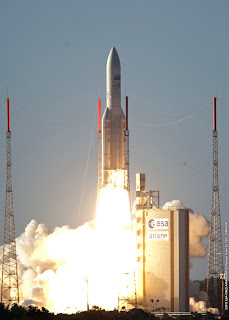
For corporate applications, it is not uncommon for enterprises to
require their specific applicatons to be automatically launched when the device
starts up.
To ensure your application is launched automatically upon device
bootup, add a new Java Class file to the project and name it as BootupReceiver.java. Populate the BootupReceiver.java class as follows:
package net.learn2develop.autostartup;
import android.content.BroadcastReceiver;
import android.content.Context;
import android.content.Intent;
import android.widget.Toast;
public class BootupReceiver extends BroadcastReceiver {
@Override
public void
onReceive(Context context, Intent intent) {
Toast.makeText(context, "App started",
Toast.LENGTH_LONG).show();
//---start the
main activity of your app---
Intent i = new
Intent(context, MainActivity.class);
i.addFlags(Intent.FLAG_ACTIVITY_NEW_TASK);
context.startActivity(i);
}
}
Add the following statements in bold to the AndroidManifest.xml file:
<manifest xmlns:android="http://schemas.android.com/apk/res/android"
package="net.learn2develop.autostartup"
android:versionCode="1"
android:versionName="1.0" >
<uses-sdk
android:minSdkVersion="8"
android:targetSdkVersion="17" />
<uses-permission android:name=
"android.permission.RECEIVE_BOOT_COMPLETED"/>
<application
android:icon="@drawable/ic_launcher"
android:label="@string/app_name"
android:theme="@style/AppTheme" >
<activity
android:name=".MainActivity"
android:label="@string/title_activity_main" >
<intent-filter>
<action android:name=
"android.intent.action.MAIN" />
<category android:name=
"android.intent.category.LAUNCHER" />
</intent-filter>
</activity>
<receiver android:name=".BootupReceiver">
<intent-filter>
<action android:name=
"android.intent.action.BOOT_COMPLETED" />
<category android:name=
"android.intent.category.DEFAULT" />
</intent-filter>
</receiver>
</application>
</manifest>
That’s it! Your application will now be automatically launched
when the device has finished the bootup process.
 In Xcode 5, you can no longer choose to create a project using the usual .XIB files. Instead, you will have to use Storyboard to create the layouts for your UI. This upcoming course on iOS Storyboard aims to show developers how to make use of Storyboard to layout their UI. In this intensive one-day course, you will learn how to get started with Storyboard, as well as create some interesting UI effects, such as sliding View windows, and your own custom PDF reader.
In Xcode 5, you can no longer choose to create a project using the usual .XIB files. Instead, you will have to use Storyboard to create the layouts for your UI. This upcoming course on iOS Storyboard aims to show developers how to make use of Storyboard to layout their UI. In this intensive one-day course, you will learn how to get started with Storyboard, as well as create some interesting UI effects, such as sliding View windows, and your own custom PDF reader. 






